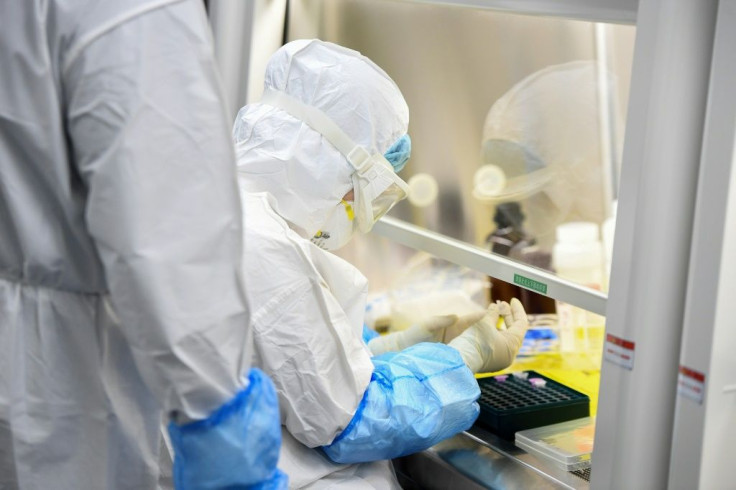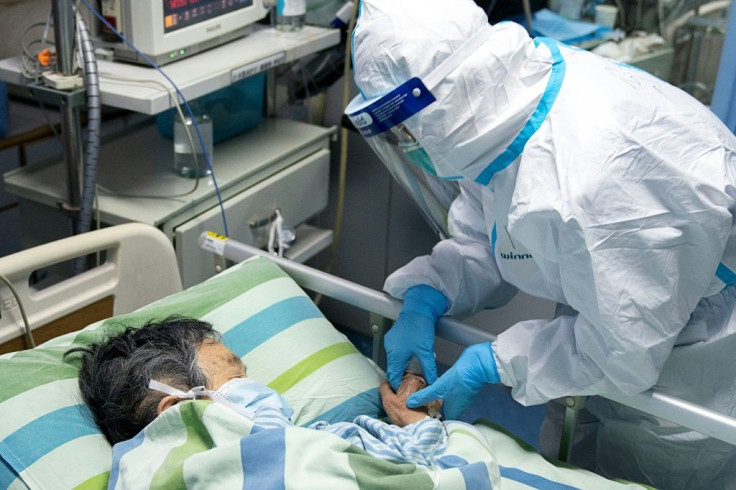China Coronavirus App Tracks And Alerts People Who Had 'Close Contact With Someone Infected'

KEY POINTS
- China released a mobile phone app that can allegedly warn a user if they've been in close contact with somoene with coronavirus
- China hasn't explained how an app can do this without any information other than the user's location
- The app's developer is a state-owned firm that makes surveillance equipment for the armed forces and the police
Eyebrows are being raised over the accuracy and legitimacy of a new mobile app introduced only in China last February 8 that can allegedly tell users if they've been in recent close contact with someone infected by the highly-contagious Novel coronavirus (2019-nCoV).
The controversial app is called a “close contact detector.” It keeps continually tracking its users.
The official state-run press agency, Xinhua News Agency, explained the workings of this app. It said to make an inquiry, a user first has to scan a QR code using mobile apps like Alipay, WeChat or QQ.
The user registers to use the app by revealing his phone number, his name and government-issued ID number. The app will then tell him if he's been in close contact with someone infected. It will tell those that have been in close contact with a carrier to stay at home and get in touch with local health authorities. Every registered phone number can be used to inquire for three other ID numbers, presumably the user's family members.
The details of how the app works are murky and China hasn't released more information on how it accurately determines persons in the user's immediate vicinity are infected.
The National Health Commission (NHC), which is leading the fight against the Novel coronavirus, hasn't explained how the app works either. It has, however, said several central government agencies collaborated “to ensure accurate, reliable and authoritative data.”
Xinhua said the General Office of the State Council (an agency of the State Council that assists in the day-to-day administration of the Chinese government), state-owned enterprise China Electronics Technology Group Corporation (CETC) and NHC had roles in developing the app.

CETC is a security electronic information products manufacturing company providing "security equipment" for both the Chinese armed forces and the police. It develops and supplies information systems, electronics equipment, communication devices and software.
CETC admitted it had received data from several government agencies to develop the app, said Xinhua. This seems to imply the close contact detector uses "big data" only artificial intelligence (AI) can comprehend. Big data also makes facial recognition systems possible. CETC said the data sources include the NHC, the Ministry of Transport, state-owned China State Railway Group Company, Ltd. and the Civil Aviation Administration of China.
NHC said close contact refers to someone with no effective protection that's come close to a confirmed case, a suspected case or a mild case while the case was ill or showed asymptomatic symptoms.
Close contact includes people that work close together, share the same classroom or live in the same house. It also includes medical staff, family members or other people that have been in close contact with patients in a closed environment and other patients in the same room and their caregivers. Also counted as close contacts are passengers and crew members in the same transportation facility with patients (confirmed and suspected cases) and infected cases (mild cases and asymptomatic cases).
© Copyright IBTimes 2025. All rights reserved.



















